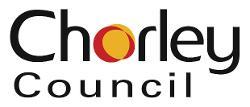What happens to your waste and recycling
Mixed recycling - glass, cans, plastic bottles, pots, tubs and trays
After your glass, cans and plastics recycling is collected, it's taken to the sorting facility in Leyland. Your recycling goes to a sorting cabin where staff pick out the large items that shouldn't be there. These items can damage the machinery. Then it's sorted by machines to separate the recyclables by type.
A magnet picks up steel cans as the recycling passes over it. The recycling is then bounced over a series of metal screens. The glass is smashed into lots of small pieces that fall between the gaps, removing the broken glass. Then optical sorters separate the plastics by type.
An eddy current separator is used to sort out the aluminium cans, because aluminium is not magnetic. Fast spinning magnets give the aluminium a temporary magnetic field which is repelled by another magnet which forces the can off the conveyor belt.
Now all the recyclables have been separated they are dropped into individual hoppers. Once there is enough of each material in a hopper, the material goes to market to be recycled. Recyclable materials from the sorting facility and recycling centres go on to reprocessing companies to turn them into new materials.
Recycled metal is separated into different types and melted down to be made into a wide range of new metal products. Virtually all metals can be recycled into high-quality new metals.
Recycling steel takes up around 75% less energy than mining and refining new steel deposits, which is enough energy to power approximately 18 million average households.
Food tins and drinks cans are made from steel or aluminium. Both of these items can be turned into new tins and cans again without any loss of quality.
Recycled glass is crushed into small pieces called cullet. The cullet is then melted at 1500°C and other ingredients are added. The liquid glass can then be blown or pressed into new bottles or jars.
Other types of glass such as Pyrex, glass ovenware or wine glasses, flutes, tumblers, windowpanes and mirror glass melt at a different temperature to glass bottles and jars, so cannot be recycled in the same way.
Plastics go to reprocessing facilities where they are washed and flaked or pelletised, ready to be made back into new packaging, such as clamshell packaging, blister packs and food packaging such as salad trays. Other uses are fibre manufacture, which is used in products such as duvets and pillows or geotextiles used for reinforcement or car roof lining.
Paper and cardboard
Paper and card are delivered to the MRF from your home where they are baled for market without any further separation. Currently, paper and cardboard are taken to a paper mill in Manchester where it is recycled into new paper and cardboard products such as Amazon cardboard packaging.
Paper and card is turned into pulp with water and chemicals, to separate the fibres. The pulp is sprayed onto a fast moving mesh to form sheets. The sheets are flattened and passed through heated rollers to make them the right thickness. The paper is then wound onto large rolls.
Each time paper fibres are recycled they get shorter making lower quality paper, which is why tissues and paper towels, which have short fibres, can't be recycled again.
Paper mills make a variety of papers from different recycled materials including; newspapers, cardboard boxes, writing paper, toilet rolls and tissue paper.
Garden Waste
Garden waste is taken to John Cooper Recycling in Farington.
Anything that can't be composted is removed and the remaining material is shredded and laid out in a long line, known as a windrow.
It decomposes and, once it has broken down the resulting compost product is either sold to proprietary garden product manufacturers, bagged for their customers, or used in soil blends.
Below are some recent examples of the destinations for your recycling
- paper and card - SAICA Paper UK Ltd
- glass bottles and jars - URM (UK) Ltd and Glass Recycling (UK) Ltd
- tins and cans - Alutrade Ltd and European Metal Recycling Ltd
- plastics bottles, pots, tubs and trays - Roydon Group Plc and Viridor Waste Kent Ltd
- garden waste - John Cooper Recycling Ltd
How we dispose of your non recyclable waste
The waste you put in your residual (non-recycling) bin at home is taken to the waste recovery park at Farington.
At Farington, metals are extracted from the waste before it's shredded and sent off as refuse derived fuel (RDF) for energy from waste plants (EFW).




